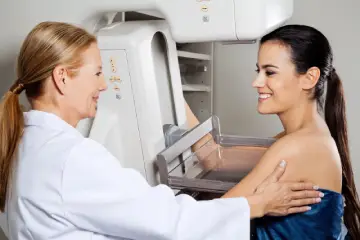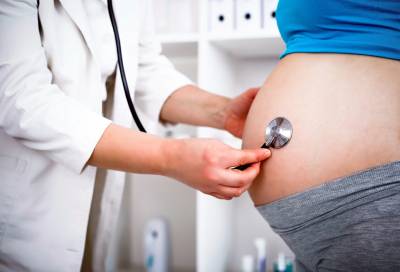Menstrual Bleeding
Menstrual Bleeding Q & A
What is considered heavy menstrual bleeding?
Abnormally heavy or prolonged menstrual periods are a common condition that affects about one-third of women. You may have heavy menstrual bleeding if you experience any of the following:
- Menstrual periods that last longer than seven days
- Soaking through one or more tampons or pads per hour for several hours
- Getting up in the middle of the night to change tampons or pads
- Periods with blood clots the size of a quarter or larger
Excessive blood loss during your period isn’t normal and can negatively affect your quality of life. The caring team at The Women’s Center works with you to develop an effective treatment plan to reduce your bleeding.
What causes heavy menstrual bleeding?
Heavy bleeding may be a symptom of an underlying medical issue or a side effect of certain treatments. Common causes of heavy menstrual bleeding include:
- Endometrial cancer
- Endometriosis
- Ectopic pregnancy
- Miscarriage
- Uterine fibroids or polyps
- Pelvic inflammatory disease
- Irregular ovulation
- Polycystic ovary syndrome (PCOS)
- Thyroid disorders such as hypothyroidism
- Blood-thinning medications such as aspirin
- Copper intrauterine device (IUD)
In some cases, the cause of heavy menstrual bleeding remains unknown. However, this condition is still treatable even without a diagnosable cause.
How do you diagnose heavy menstrual bleeding?
First, your provider at The Women’s Center performs a thorough physical and pelvic exam and reviews your medical history. Depending on your age and symptoms, they may take additional tests, such as:
- Pregnancy test
- Sexually transmitted disease (STD) test
- Pelvic ultrasound
- Hysteroscopy
During hysteroscopy, your provider inserts a thin, lighted scope through your cervix to examine the uterus.
How do you treat heavy menstrual bleeding?
Treatment for heavy menstrual bleeding depends on the severity of your condition and underlying cause, if any. The team at The Women’s Center typically begins with prescription medications to reduce the bleeding.
These medications may include:
- Hormonal birth control methods
- Hormone therapy
- Nonsteroidal anti-inflammatory drugs (NSAIDS)
- Tranexamic acid
If your symptoms persist despite medication therapy, your provider at The Women’s Center may recommend a surgical procedure, such as endometrial ablation, to control the bleeding.
To find relief from heavy menstrual bleeding, contact The Women’s Center or schedule your visit through our online booking system.
We Provide You With The Best Services

Mammogram
Learn
More
Routine mammograms are the best way to find breast cancer early when it’s most treatable. The expert OB/GYN team at...




